|
|
CMEP Weekly Bulletin: Fr. Patton: Holy Land is Where Christians Live in Concrete Unity A look at thoughts on unity, forcible evictions, and more news in this week’s bulletin. Image: A Greek Orthodox Christian prays at the Church of the Nativity. (AFP) CMEP’s Bulletin is a weekly round-up of news from the Middle East and represents an array of perspectives on the issues we cover. CMEP does not necessarily agree with all the views expressed in the articles, and they do not speak on CMEP’s behalf. |
|
|
|
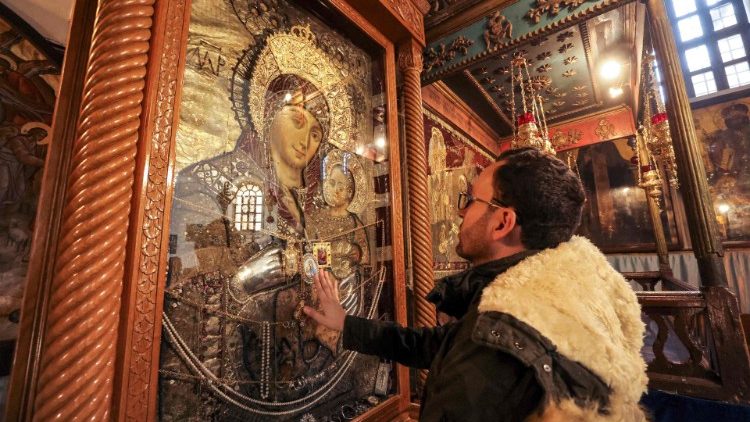 |
Image: A Greek Orthodox Christian prays at the Church of the Nativity. (AFP or licensors) |
|
|
Fr. Patton: Holy Land is where Christians live in concrete unity Vatican News “‘I would dare to say that the Holy Land is the place where Christian communities are closest to unity. I would say that in the Holy Land we speak less about the theory of ecumenism and instead practice unity much more.’ Fr. Francesco Patton, OFM, offered that assessment of life in the Land of Jesus at the start of the Week of Prayer for Christian Unity. The Franciscan Custos of the Holy Land was speaking in an interview with Vatican News’ Alessandro Di Bussolo on the heels of an audience with Pope Francis.” |
|
|
|
|
|
|
|
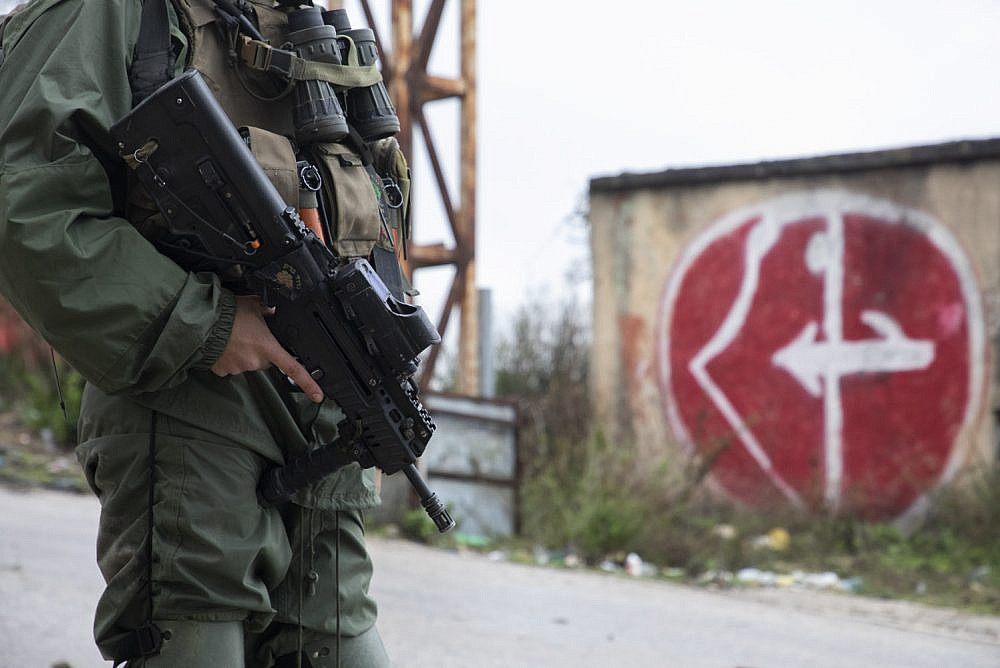 |
Image: An Israeli soldier seen during an army raid on the Palestinian village of Burqa in the West Bank next to a spray-painted symbol of The Popular Front for the Liberation of Palestine (PFLP). (Oren Ziv) |
|
|
Israel’s new secret document still fails to tie Palestinian NGOs to ‘terrorism’
+972 Mag “For the better part of the last year, the Israeli government has been on a mission to convince European countries that six of the most prominent Palestinian civil society organizations are actually a front for terrorism. Yet despite its efforts, which included a confidential 74-page Shin Bet dossier sent to diplomats last May, Israel has failed to persuade European leaders of its allegations.” |
|
|
|
|
|
|
|
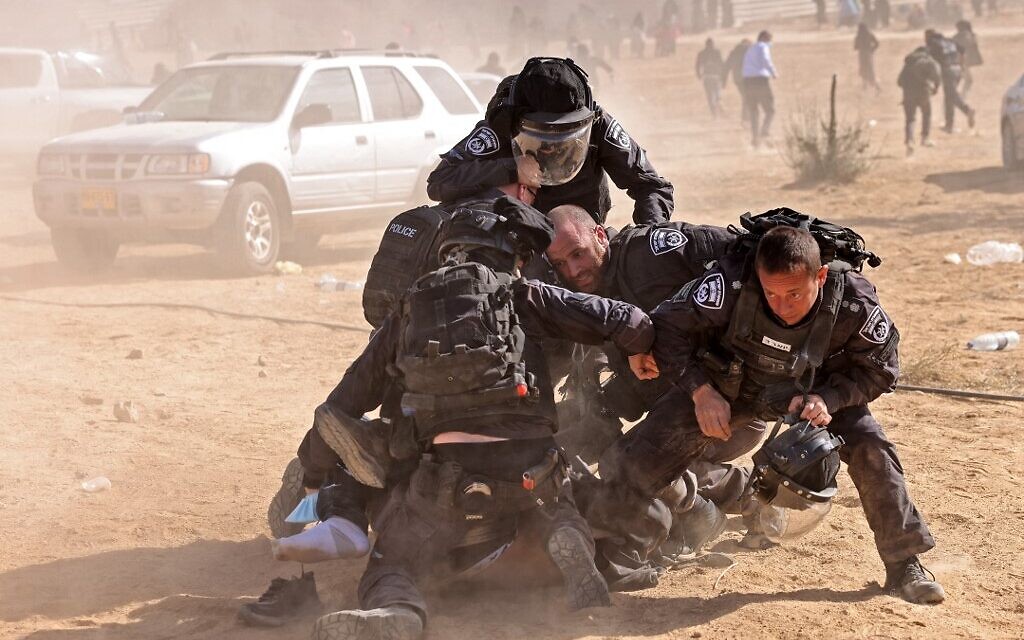 |
Image: Israeli police detain a man as Bedouins protest in the southern Negev Desert against a forestation project by the Jewish National Fund (JNF), on January 12, 2022. (AHMAD GHARABLI / AFP) |
|
|
Why tree planting in the Negev sparked protests, riots and a coalition crisis
Times of Israel “The slender saplings, placed into soil churned up by tractors, seem far too innocuous to spark a coalition crisis. But where and how they’re planted turns out to matter on a national scale. The Jewish National Fund, a quasi-governmental body that oversees 13 percent of Israel’s land, began several days of planting trees on disputed land in the Negev on Sunday (January 9). The response was immediate: protests by Bedouin residents that escalated into clashes. Many Negev Bedouin live in unrecognized townships scattered across Israel’s southern desert. The government has sought to relocate them into planned, recognized cities, but most Bedouin have refused, insisting on the right to stay where they are.” |
|
|
|
|
|
|
|
|
|
|
|
|
|
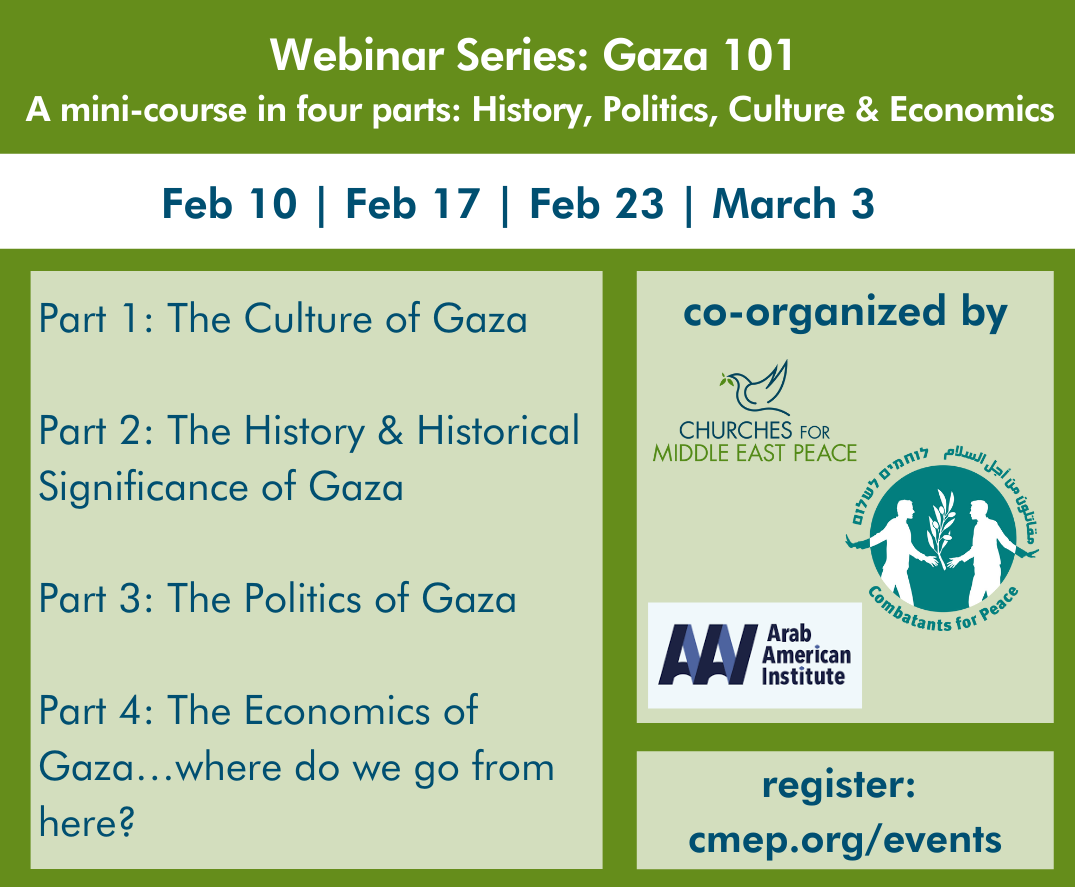 |
Webinar Series: Join CMEP for a series of discussions on Gaza in February and March. This program will openly and honestly present the reality of the siege, the occupation, and political leadership as well as include ways participants can advocate with their elected officials to encourage U.S. policies that will help end the siege of Gaza and advance human rights and security for all. This series is co-organized by Churches for Middle East Peace, Arab American Institute, and American Friends of Combatants for Peace. Each 90-minute session will present on one of these four aspects of Gaza: History & Historical Significance, Politics, Culture, Economics. |
|
|
|
|
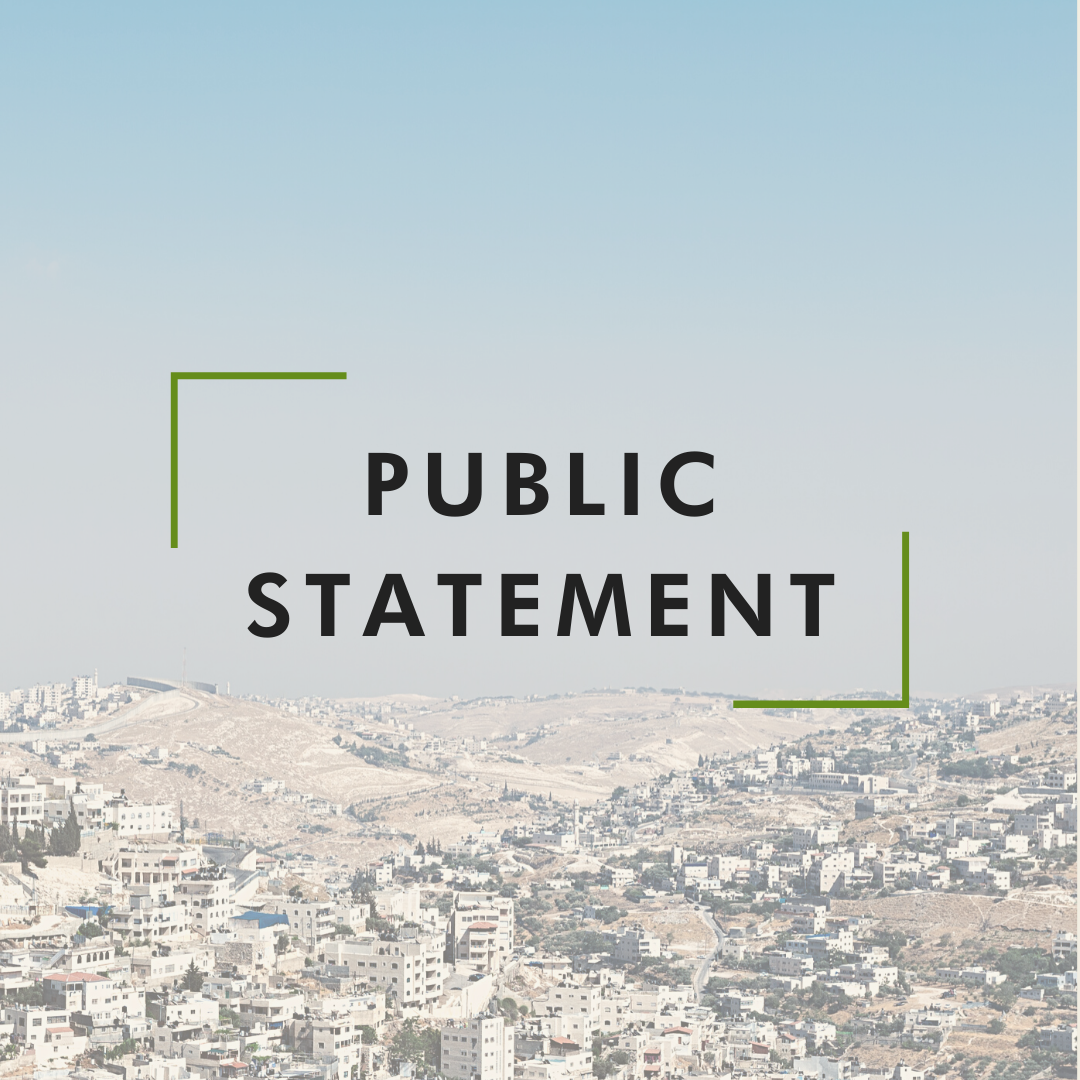 |
Public Statement: CMEP Strongly Opposes the Demolition of the Salhiya Family Home in Sheikh Jarrah: Churches for Middle East Peace (CMEP) strongly condemns the demolition of the Salhiya family home and urges the Biden Administration to intervene to end the forced displacement of Palestinians from Sheikh Jarrah. |
|
|
|
|
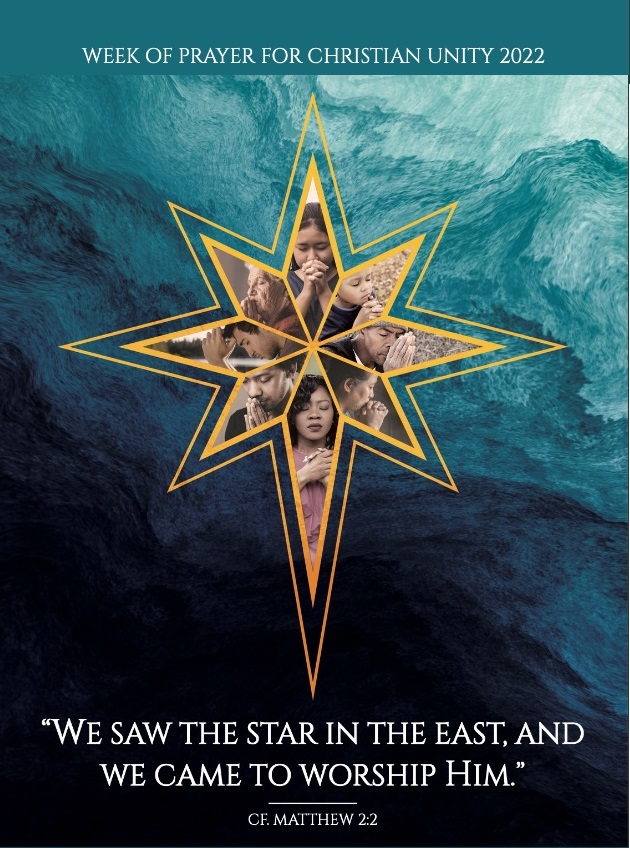 |
Week of Prayer For Christian Unity: Reflections from the Middle East: We hope you were able to join us this week for reflections from the Middle East for the Week of Prayer for Christian Unity. The theme for 2022 was “We Saw the Star in the East, and We Came To Worship Him.” CMEP hosted a religious leader live from the Middle East each day this week for a time of prayer and reflection. You can view the recordings from each day at the link below. |
|
|
|
|
|
|
|
Support CMEP CMEP has repeatedly called for a peaceful resolution to conflicts in the Middle East. Please donate to help amplify this message. |
|
|
|
|
|
|
|
|
|
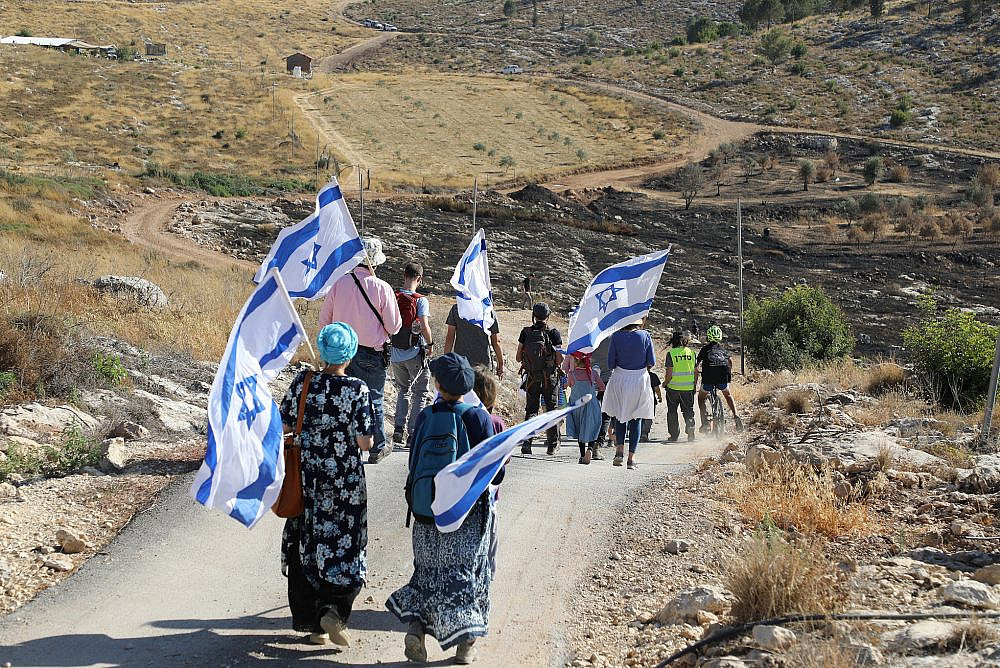 |
Image: Israeli settlers hold the Israeli flag and signs reading "Preserving and saving the Israeli land" in Bat Ayin and the Gush Etzion junction, June 21, 2021. (Gershon Elinson/Flas90) |
|
|
West Bank settlements are annexing land in Israel, too
+972 Mag “Israel’s creeping annexation of the West Bank is by no means a new story. By now, and especially after the Netanyahu-Trump years, its contours are well known: Israel has steadily been taking over more and more Palestinian-owned land in the occupied territories in order to build and expand Jewish settlements and prevent the possibility of a Palestinian state. But what happens when those settlements become so powerful that they start annexing land within the Green Line?" |
|
|
|
|
|
|
|
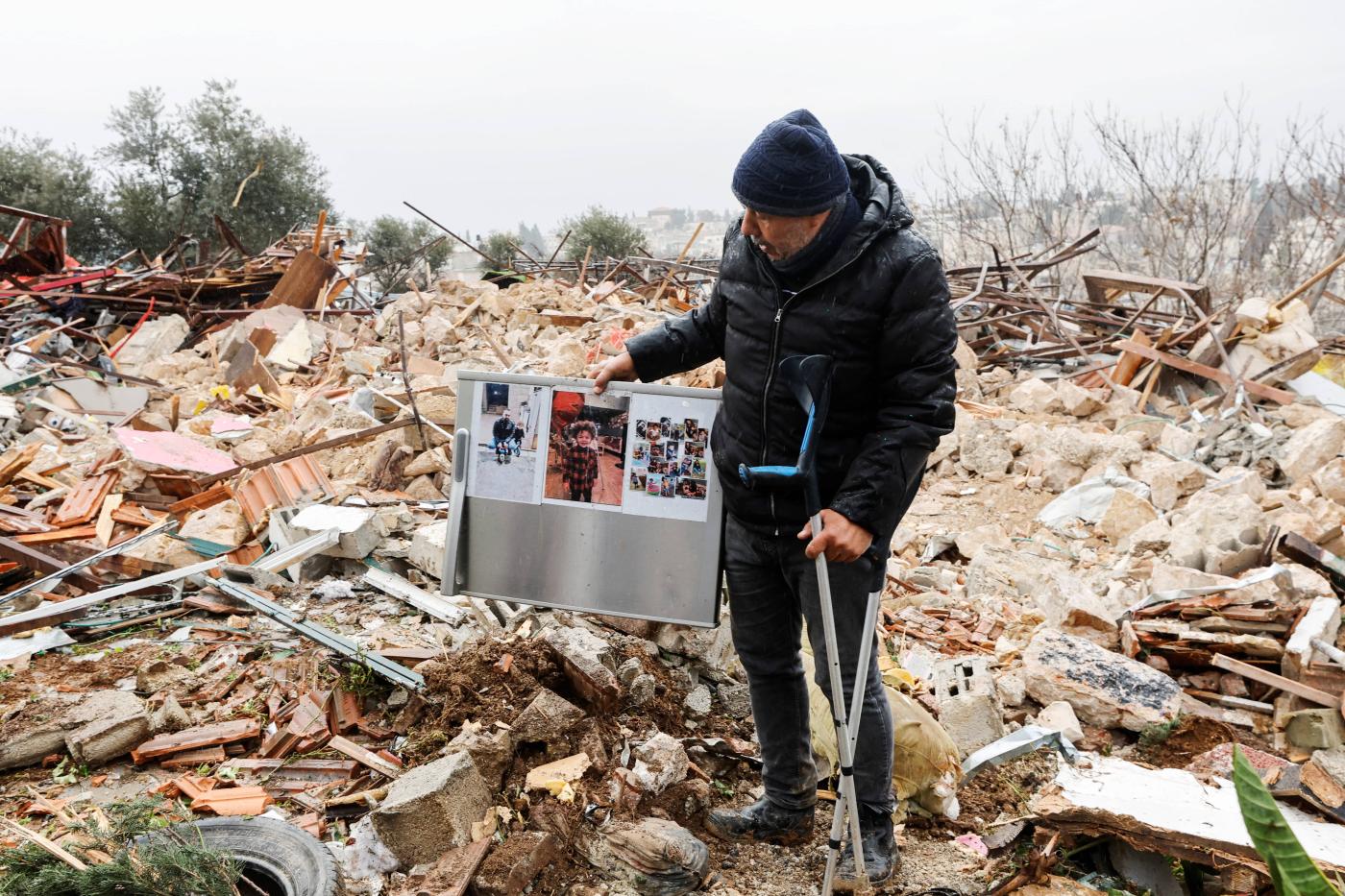 |
Image: A Palestinian man holds up the remains of a refrigerator with family photos on it at the site of the Salhiya family's demolished home. (Reuters) |
|
|
'War crime': Israel widely condemned for Sheikh Jarrah demolition
Middle East Eye “Israel has been widely criticised for the overnight demolition of a Palestinian home in the Sheikh Jarrah neighbourhood of occupied East Jerusalem. Palestinian groups and international rights organisations condemned the tearing down of the home of the Salhiya family, which left 18 people homeless including children, as a ‘war crime’. The demolition was carried out overnight on Wednesday (January 19) by a large Israeli security operation, which violently raided the home of Mahmoud Salhiya before arresting him with a number of his relatives and supporters. It followed an eviction order by Israel's Jerusalem municipality which argued that the Salhiyas have no right over the land." Read CMEP's statement on the Salhiya home being demolished here. |
|
|
|
|
|
|
|
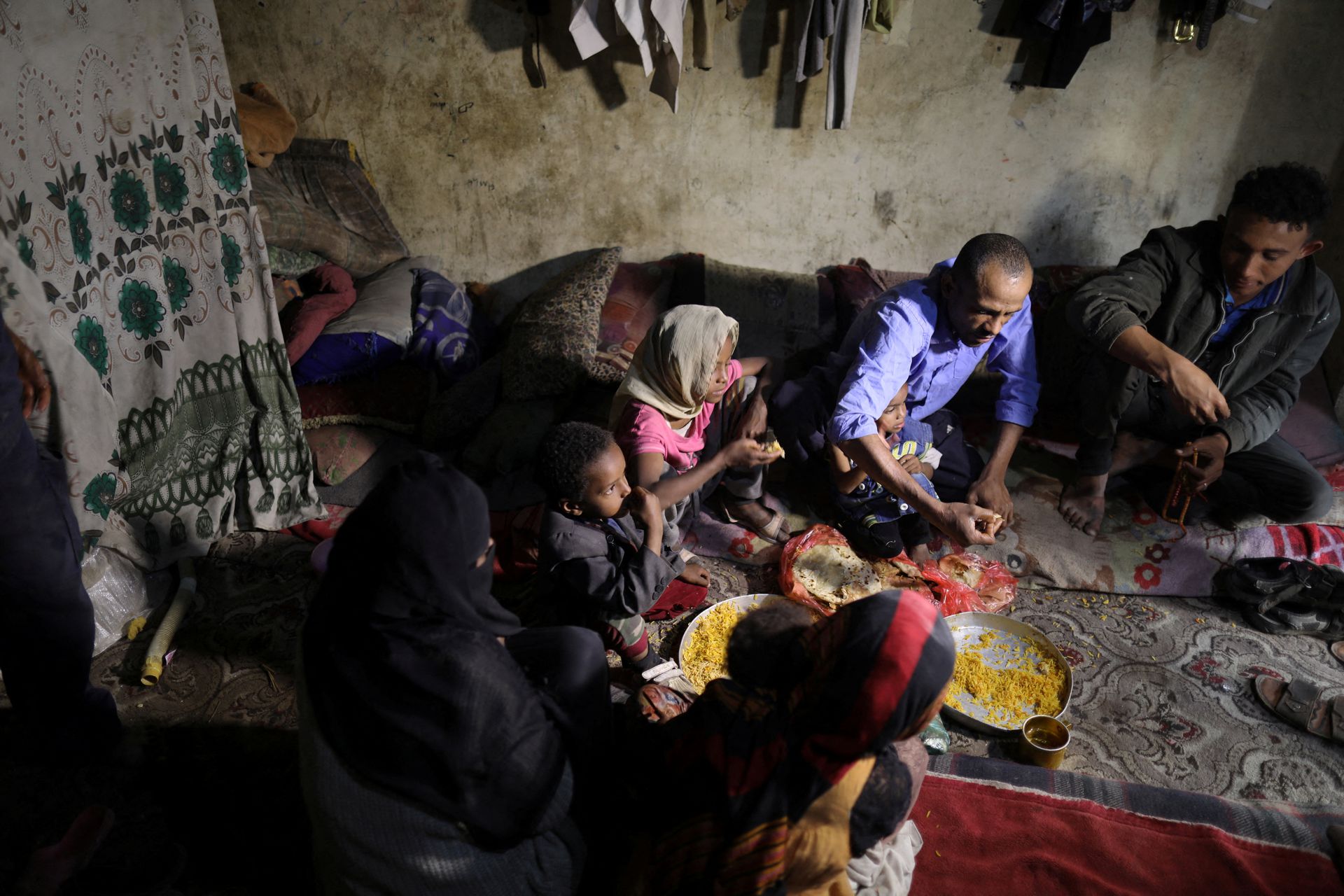 |
Image: Family members of Ismail Hassan, displaced by war in the Red Sea port city of Hodeidah, eat lunch at their shelter in Sanaa, Yemen January 17, 2022. Picture taken January 17, 2022. (Reuters/Khaled Abdullah) |
|
|
Yemeni family lives in abandoned shop as war, hunger drags on
Reuters “Ismail Hassan, a Yemeni father of ten, houses his family in an abandoned shop and scavenges recyclable items from rubbish bins to feed them. Living in the capital Sanaa after fleeing his hometown four years ago, Hassan is one of millions of Yemenis battling with increasing poverty and hunger as peace eludes the seven-year conflict and cash-strapped aid organisations struggle to keep assistance flowing. The World Food Programme (WFP) has since January reduced food rations for 8 million people due to funding shortages, warning the cuts would push more people into starvation." |
|
|
|
|
|
|
|
CMEP's Bulletin is a weekly round-up of news from the Middle East and represents an array of perspectives on the issues we cover. CMEP does not necessarily agree with all the views expressed in the articles, and they do not speak on CMEP's behalf. |
|
|
|
Churches for Middle East Peace (CMEP)
110 Maryland Ave NE, Suite 311 | Washington, District of Columbia 20002
(202) 543-1222 | info@cmep.org |
|
|
|
|
|
|
|
|
|